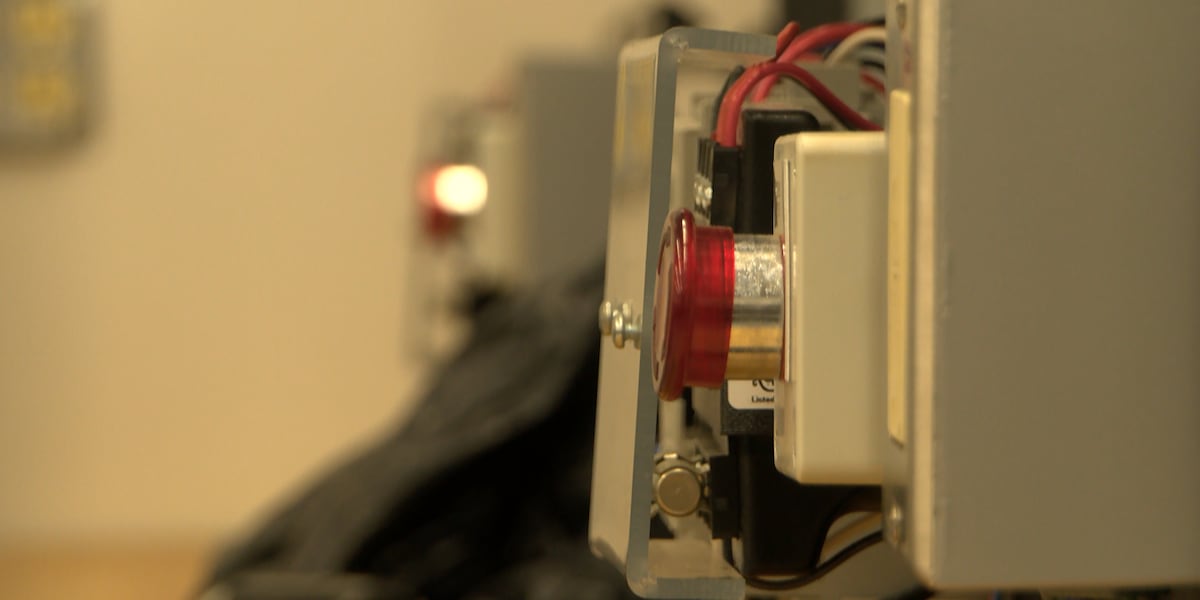Transforming Traditional Learning Spaces for Tomorrow’s Workforce
In an era where technological advancement outpaces traditional education models, Williamsburg Technical College in Kingstree, South Carolina is making a bold statement about the future of workforce training. The institution is converting its traditional library space into a cutting-edge workforce training center, representing a fundamental shift in how community colleges approach career preparation and student success.
This transformation reflects a broader national trend where educational institutions are reimagining physical spaces to meet the evolving needs of both students and employers. As libraries become increasingly digital and students seek more hands-on, practical learning experiences, Williamsburg Technical College’s initiative offers a compelling blueprint for other institutions facing similar challenges.
The Vision Behind the Innovation
The new advanced workforce training center represents more than just a renovation project—it’s a strategic response to the changing demands of the modern economy. By repurposing library space, the college is creating an innovative lab environment where students can engage with cutting-edge technology and industry-standard equipment that directly translates to workplace readiness.
This approach addresses a critical gap in traditional higher education: the disconnect between theoretical learning and practical application. Many employers today report that while graduates may have strong academic credentials, they often lack the hands-on experience and technical skills needed to be immediately productive in the workplace.
Meeting Regional Economic Demands
Williamsburg County, like many rural areas across the United States, faces unique economic challenges and opportunities. The region’s economy has historically relied on agriculture and manufacturing, but emerging industries and technological advancement are creating new job categories that require specialized training and skills development.
By establishing this workforce training center, Williamsburg Technical College is positioning itself as a catalyst for regional economic development. The facility will likely serve not only current students but also working professionals seeking to upskill or reskill as their industries evolve.
The Evolution of Community College Libraries
The transformation of Williamsburg Technical College’s library space reflects a nationwide evolution in how educational institutions utilize their facilities. Traditional libraries, once centers of book-based research and quiet study, are being reimagined as collaborative learning hubs and innovation spaces.
This shift has been accelerated by several factors:
- Digital Resources: With most research materials now available online, physical book collections require less space
- Collaborative Learning: Modern pedagogy emphasizes group work and project-based learning over individual study
- Technology Integration: Students need access to specialized equipment and software that traditional classroom settings cannot accommodate
- Industry Partnerships: Colleges are increasingly working directly with employers to create training programs that meet specific workforce needs
National Trends in Workforce Development
Williamsburg Technical College’s initiative aligns with national priorities in workforce development. The Biden administration’s infrastructure and manufacturing initiatives have emphasized the need for skilled technical workers in areas such as renewable energy, advanced manufacturing, and information technology.
According to the National Association of Manufacturers, the skills gap in manufacturing alone could result in 2.1 million unfilled jobs by 2030. Community colleges like Williamsburg Technical College are uniquely positioned to address this challenge through targeted training programs that can be quickly adapted to meet emerging industry needs.
Impact on Student Experience and Outcomes
The new workforce training center will fundamentally change the student experience at Williamsburg Technical College. Instead of primarily engaging with textbooks and lectures, students will have access to hands-on learning environments that simulate real workplace conditions.
This experiential learning approach has been shown to improve several key outcomes:
- Retention Rates: Students are more likely to complete programs when they can see direct applications for their learning
- Employment Outcomes: Graduates with hands-on experience are more attractive to employers and often command higher starting salaries
- Industry Connections: Training centers often facilitate direct relationships between students and potential employers
- Skill Validation: Students can earn industry-recognized certifications and credentials alongside their academic degrees
Addressing Diverse Learning Styles
The shift toward hands-on learning environments also recognizes that students have diverse learning styles and preferences. While some students thrive in traditional classroom settings, others learn best through kinesthetic and visual experiences. The new training center will accommodate multiple learning approaches, potentially improving outcomes for a broader range of students.
Economic and Community Impact
Beyond its direct impact on students, the workforce training center represents a significant investment in the local community. By producing graduates with skills that match regional employer needs, the college is helping to strengthen the local economy and attract new businesses to the area.
Rural communities like Kingstree often face challenges in retaining young people who may leave for educational or employment opportunities in larger cities. By providing high-quality technical training locally, Williamsburg Technical College may help reverse this trend and contribute to community sustainability.
Partnership Opportunities
The new facility will likely create opportunities for expanded partnerships with local businesses, regional employers, and other educational institutions. These partnerships can take various forms:
- Equipment donations from industry partners
- Internship and apprenticeship programs that provide students with real-world experience
- Curriculum development guided by employer input
- Professional development opportunities for working adults
Looking Toward the Future
As Williamsburg Technical College moves forward with this ambitious project, it joins a growing number of institutions that are rethinking the role of community colleges in workforce development. The success of this initiative could serve as a model for other rural colleges facing similar challenges and opportunities.
The project also highlights the importance of adaptive leadership in educational institutions. By recognizing changing student needs and economic conditions, the college is positioning itself for long-term sustainability and relevance.
Key Takeaways
- Space Transformation: Williamsburg Technical College is converting library space into an advanced workforce training center, reflecting broader trends in educational facility utilization
- Workforce Development Focus: The initiative addresses critical skills gaps in the regional economy and aligns with national workforce development priorities
- Student-Centered Approach: The new facility will provide hands-on learning experiences that better prepare students for immediate employment
- Community Investment: The project represents a significant commitment to regional economic development and community sustainability
- Model for Innovation: Other rural community colleges may look to Williamsburg Technical College’s approach as they face similar challenges and opportunities
- Partnership Potential: The training center will likely facilitate stronger relationships between the college, local businesses, and regional employers
This article is based on reporting from the original source

Born and raised amidst the hustle and bustle of the Big Apple, I’ve witnessed the city’s many exciting phases. When I’m not exploring the city or penning down my thoughts, you can find me sipping on a cup of coffee at my favorite local café, playing chess or planning my next trip. For the last twelve years, I’ve been living in South Williamsburg with my partner Berenike.

